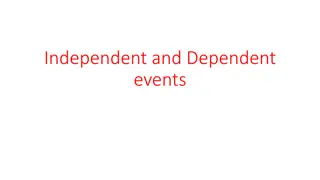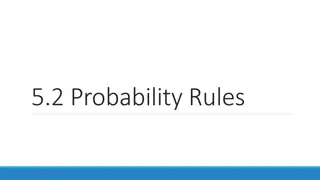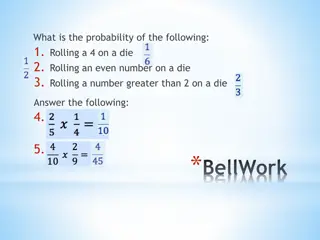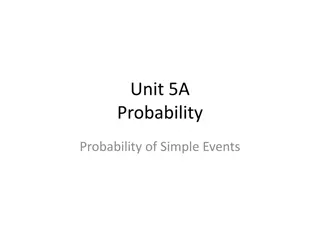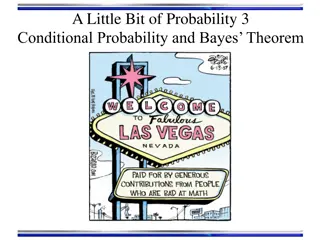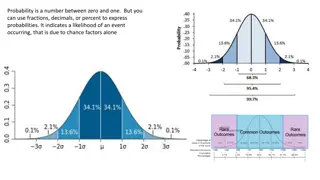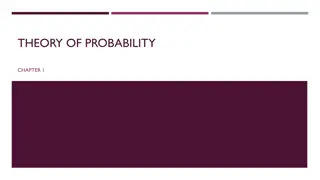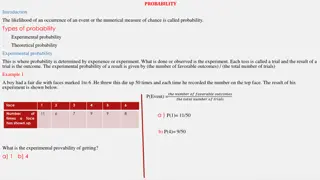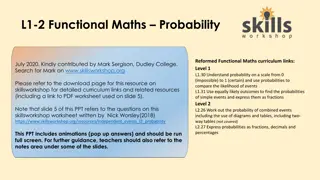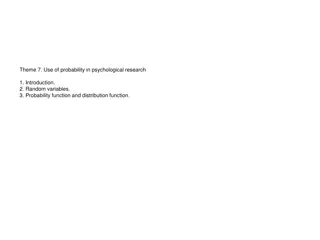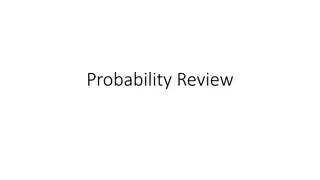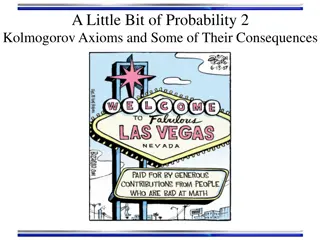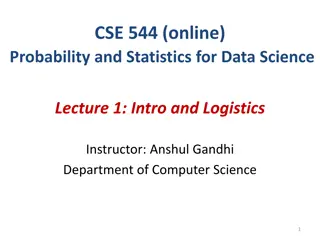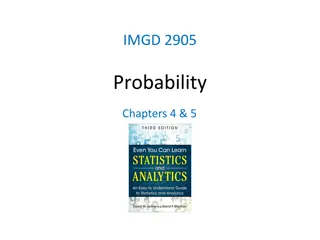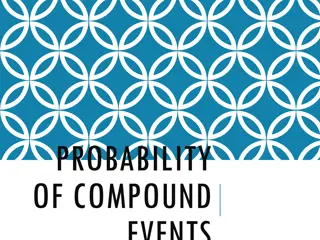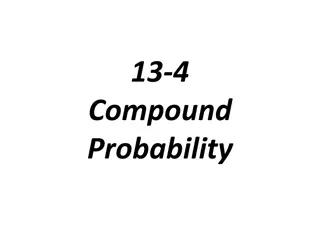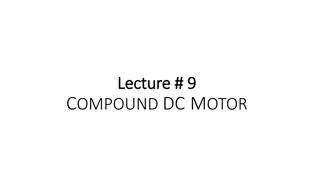Probability of Compound Events
Learn about compound events in probability, including mutually exclusive events, overlapping events, and independent events. Explore formulas and solve problems related to spinning a spinner, rolling number cubes, and selecting tiles with and without replacement.
Download Presentation

Please find below an Image/Link to download the presentation.
The content on the website is provided AS IS for your information and personal use only. It may not be sold, licensed, or shared on other websites without obtaining consent from the author.If you encounter any issues during the download, it is possible that the publisher has removed the file from their server.
You are allowed to download the files provided on this website for personal or commercial use, subject to the condition that they are used lawfully. All files are the property of their respective owners.
The content on the website is provided AS IS for your information and personal use only. It may not be sold, licensed, or shared on other websites without obtaining consent from the author.
E N D
Presentation Transcript
12-8 Probability of Compound Events
Compound Event: Consists of two or more events linked by the word and or by the word or Mutually Exclusive Events: When two events have no outcomes in common Overlapping Events: When events have at least one outcome in common
FORMULAS Mutually Exclusive Events: ? ? ?? ? = ? ? + ?(?) Overlapping Events: ? ? ?? ? = ? ? + ? ? ?(? ??? ?)
Problem 1: Mutually Exclusive and Overlapping Events Suppose you spin a spinner that has 20 equal- sized sections numbered from 1 to 20. What is the probability that you spin a 2 or a 5? What is the probability that you spin a number that is a multiple of 2 or 5?
Independent Events: if the occurrence of one event does not affect the probability of the second event. FORMULA ? ? ??? ? = ?(?) ?(?)
Problem 2: Finding the Probability of Independent Events Suppose you roll a red number cube (dice) and a blue number cube. What is the probability that you will roll a 3 on the red cube and an even number on the blue cube? What is the probability that you roll a 5 on the red cube and a 1 or 2 on the blue cube?
Problem 3: Selecting with Replacement You choose a tile at random from the game tiles shown. You replace the first tile and then choose again. What is the probability that you choose a dotted tile and then a dragon tile?
You choose a tile at random from the game tiles shown. You replace the first tile and then choose again. What is the probability that you choose a bird and then a flower?
Dependent Events: If the occurrence of one event affects the probability of the second event. FORMULA ? ? ? ?? ? = ?(?) ?(? ????? ?)
Problem 4: Selecting without Replacement Suppose you choose a tile at random from the tiles shown. Without replacing the first tile, you select a second tile. What is the probability that you choose a dotted tile and then a dragon tile?
Suppose you choose a tile at random from the tiles shown. Without replacing the first tile, you select a second tile. What is the probability that you choose a flower tile and then a bird tile?





